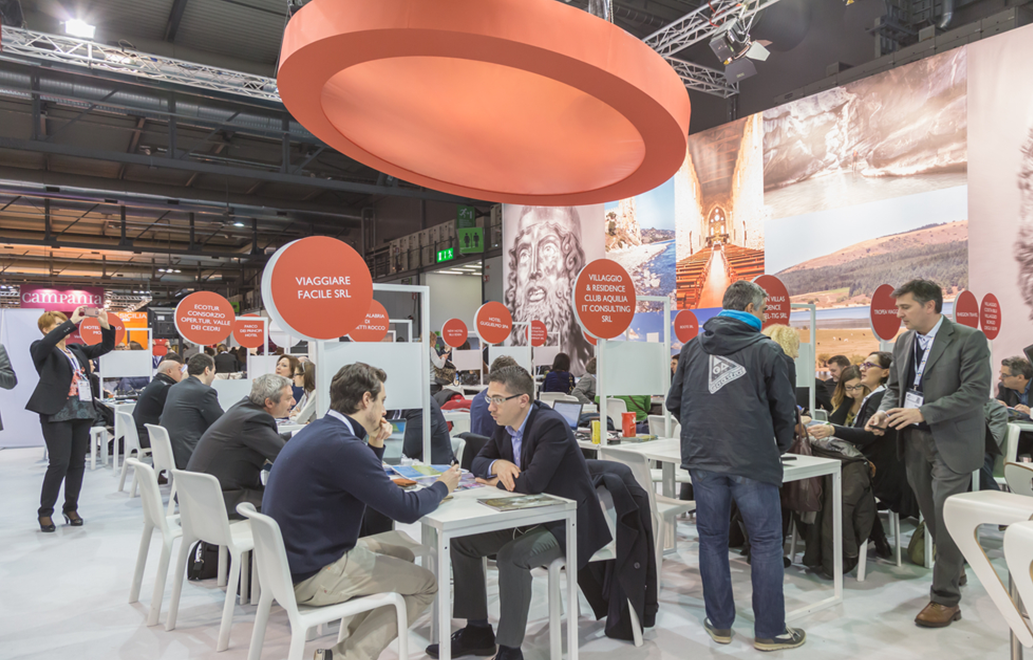Understanding Event Production: Why It Is Crucial for Successful Celebrations
Event production plays a vital duty fit successful gatherings. It includes careful planning, coordination, and execution to assure every detail aligns with the event's vision. This process not only enhances attendee experiences yet additionally promotes purposeful links amongst participants. Comprehending the complexities of event production can considerably impact the total end result. What are the crucial elements that add to a successful event, and exactly how can they be properly managed?
The Function of Event Production in Developing Memorable Experiences
Although numerous aspects add to the success of an occasion, event production plays a critical duty in crafting unforgettable experiences. This multifaceted process encompasses different aspects, including preparation, logistics, and implementation. Reliable event production warranties that every information lines up with the general vision, producing a smooth circulation that astounds guests. By collaborating timelines, handling sources, and managing technical elements, event producers establish a structure for impactful experiences.Moreover, they curate settings that reverberate with the target market, boosting involvement and psychological link. From choosing appropriate locations to integrating cutting-edge technology, the choices made throughout production substantially affect just how participants regard and bear in mind the event. By focusing on quality and interest to detail, event production changes ordinary celebrations right into phenomenal minutes, leaving long-term perceptions. Eventually, the competent orchestration of these components specifies the essence of an occasion, showcasing the relevance of expert event production in accomplishing extraordinary outcomes.
Secret Components of Effective Event Production
Reliable event production hinges on a number of essential parts that guarantee success. Preparation and control develop a strong foundation, while technological setup demands deal with logistical requirements. Furthermore, carrying out audience interaction strategies boosts the total experience, making the event remarkable.
Planning and Coordination
Planning and sychronisation function as the backbone of successful event production, making certain that every information straightens seamlessly to develop a remarkable experience. Efficient planning involves establishing a clear vision and goals, while coordination involves the careful company of logistics, timetables, and resources. A well-defined timeline is necessary, leading all stakeholders through vital landmarks and jobs. Communication plays a critical function, promoting cooperation amongst staff member, vendors, and place team. Normal meetings and updates help to resolve challenges promptly, ensuring that everyone remains aligned with the event goals. Eventually, an organized technique to preparation and sychronisation not only enhances effectiveness yet additionally greatly adds to the total success and pleasure of the event for participants and coordinators alike.
Technical Arrangement Needs
An effective event depends heavily on its technological arrangement demands, which include vital elements such as audio-visual equipment, lighting, staging, and connection. Audio-visual devices includes microphones, speakers, and projectors, making certain that discussions and performances are delivered clearly. Proper lights improves the setting and highlights vital areas, while staging provides the needed system for speakers and entertainers. Connectivity, consisting of Wi-Fi and electrical access, is vital for smooth communication and modern technology combination. Each element must be thoroughly planned and performed, tailored to the event's details needs. Insufficient technical configurations can result in disturbances, negatively impacting the general experience for participants, underscoring the value of extensive prep work and focus to detail in event production.
Audience Involvement Techniques

The Relevance of Planning and Sychronisation
Preparation and sychronisation are critical to the success of any kind of event production. Efficient timeline management, source allowance techniques, and group interaction dynamics play necessary functions in making sure that all components come together effortlessly. Without an organized approach to these aspects, events run the risk of facing hold-ups, spending plan overruns, and miscommunication among employee.
Reliable Timeline Administration


While effective event production often depends upon creativity and execution, efficient timeline monitoring continues to be a vital component that can not be neglected. A well-structured timeline serves as the foundation of any event, guaranteeing that each phase is implemented in a prompt fashion. It permits the control of different tasks, from place configuration to guest arrivals, while avoiding potential traffic jams. By plainly outlining target dates and obligations, event organizers can maintain emphasis and adapt to unanticipated obstacles. In addition, a carefully crafted timeline cultivates interaction amongst staff member, promoting responsibility and cooperation. Inevitably, reliable timeline management not just boosts operational efficiency however additionally contributes greatly to the overall success and smooth implementation of the event, leaving guests with a remarkable experience.
Resource Appropriation Techniques
Efficient resource allotment techniques are critical for the successful implementation of any kind of event. Proper preparation allows event organizers to determine and distribute sources, such as finances, employees, and products, in a way that maximizes effectiveness. By reviewing the details requirements of each aspect of the event, coordinators can prioritize tasks and designate More Bonuses sources as necessary. Sychronisation amongst different departments makes certain that all aspects, from providing to audiovisual requirements, are effectively supported. This strategic method not just decreases waste but also improves the total experience for attendees. Additionally, anticipating prospective obstacles and having backup plans in position permits for smoother procedures. Inevitably, efficient resource allowance adds substantially to accomplishing event goals and guaranteeing a memorable event.
Group Interaction Characteristics
How can seamless communication amongst staff member transform the event production process? Effective interaction is essential for working with tasks, sharing updates, and resolving difficulties in real-time. When group address participants participate in open discussion, they can rapidly identify potential concerns and establish remedies collaboratively, reducing delays and misconceptions. This vibrant fosters a natural setting where every person understands their functions and duties, resulting in an extra synchronized effort. Additionally, normal check-ins and comments loops enhance accountability and guarantee placement with the event's purposes. By prioritizing interaction techniques, groups can improve process, bolster morale, and eventually boost the overall quality of the event. Successful celebrations hinge on the capacity to interact effectively, making it a crucial element of event production.
Enhancing Participant Engagement Via Creative Layout
Innovative design plays a crucial duty in improving attendee interaction at events, as it cultivates an immersive environment that astounds individuals' interest. By integrating cutting-edge visuals, interactive aspects, and thematic style, event planners can create memorable experiences that reverberate with guests. Thoughtful format designs advertise motion and expedition, motivating visitors to communicate with displays and each other.Incorporating modern technology, such as enhanced fact or live polling, additional enriches the experience, enabling for real-time responses and interaction. Additionally, sensory components like lights, sound, and scent can stimulate feelings and create a more engaging atmosphere.The use of storytelling with design helps convey the event's purpose and message, making it a lot more relatable for guests. Eventually, creative style not only boosts interaction yet likewise grows connections amongst participants, leaving a lasting impression that expands beyond the event itself. This calculated approach to layout is vital for effective events.
Taking care of Logistics for a Smooth Execution
While the excitement of an event can attract attendees in, handling logistics is vital to safeguard a smooth execution. This involves carefully collaborating different components, from place option and design to food catering and transportation. Efficient logistics management guarantees that that site all components align, permitting a smooth circulation from registration to the final thought of the event.Additionally, a clear communication strategy amongst all stakeholders is vital. This consists of staff, suppliers, and volunteers, who need to be educated of their roles and responsibilities. Anticipating possible difficulties, such as equipment failing or unexpected climate conditions, can additionally improve the event's success.Creating a comprehensive timeline aids keep the team on course and enables prompt modifications. Eventually, well-managed logistics not only facilitate an enjoyable experience for guests however additionally show the expertise and dependability of the organizers, adding to the general success of the celebration.

The Effect of Technology on Event Production
What function does technology play in shaping contemporary event production? Modern technology has become a foundation of efficient event production, improving both intending and implementation processes. From innovative registration systems to interactive applications, modern technology improves attendee management and improves interaction. Digital event platforms enable coordinators to reach bigger target markets, breaking geographical obstacles and helping with hybrid events that combine in-person and on the internet experiences.Additionally, audiovisual modern technologies, such as high-def screens and audio systems, elevate the high quality of discussions and efficiencies, making sure an unforgettable experience for guests - event production charlotte. Social network assimilation makes it possible for real-time feedback and communication, cultivating area involvement in the past, throughout, and after the event. Data analytics devices help organizers in checking participant habits and choices, allowing customized experiences that resonate with diverse target markets. Overall, the combination of technology in event production not only enhances operational efficiency yet additionally enriches guest experiences, eventually adding to the success of the event
Reviewing Success: Determining the Outcomes of Your Event
Success in event production pivots on efficient analysis, which includes determining a variety of end results to examine the total effect of an occasion. To achieve this, organizers can employ both qualitative and quantitative metrics. Quantitative actions may include participation numbers, ticket sales, and income created, while qualitative analyses might entail guest satisfaction surveys and responses forms.Additionally, assessing social media sites engagement and media coverage can offer insights into the event's reach and brand influence. Contrasting these metrics against predefined goals assists establish if the goals were met.Furthermore, post-event debriefs with the planning group can discover lessons found out and areas for renovation. By systematically reviewing these results, event manufacturers can enhance future celebrations, guaranteeing constant development and success. Inevitably, a complete examination not only highlights success but likewise notifies strategic choices for subsequent events, promoting a society of excellence in event production.
Often Asked Inquiries
What Qualifications Should an Occasion Producer Have?
Event manufacturers should have strong organizational skills, creativity, and reliable interaction capabilities. A history in project management, budgeting, and settlement is vital. Appropriate qualifications and experience in diverse event types additionally enhance their certifications.
How Can I Minimize Event Production Prices Efficiently?
To efficiently lower event production expenses, one can streamline supplier selection, work out agreements, make use of in-house sources, prioritize crucial components, execute innovation for efficiency, and discover sponsorship possibilities to offset costs without jeopardizing top quality.
What Are the Common Challenges in Event Production?
Typical difficulties in event production consist of budget plan restrictions, logistical sychronisation, vendor monitoring, time constraints, guest interaction, technical difficulties, and unanticipated conditions - event production charlotte. Each element can considerably affect the total success and smooth implementation of the event
Exactly how Do I Pick the Right Venue for My Event?
Picking the ideal location involves thinking about variables such as place, capacity, facilities, and budget. In addition, evaluating ease of access and atmosphere guarantees the picked area aligns with the event's objectives and boosts the general attendee experience.
What Is the Regular Timeline for Preparation an Occasion?
The regular timeline for preparing an event differs, however generally consists of phases such as concept development, place choice, supplier sychronisation, promo, and last preparations, often extending several months to assure a successful implementation.